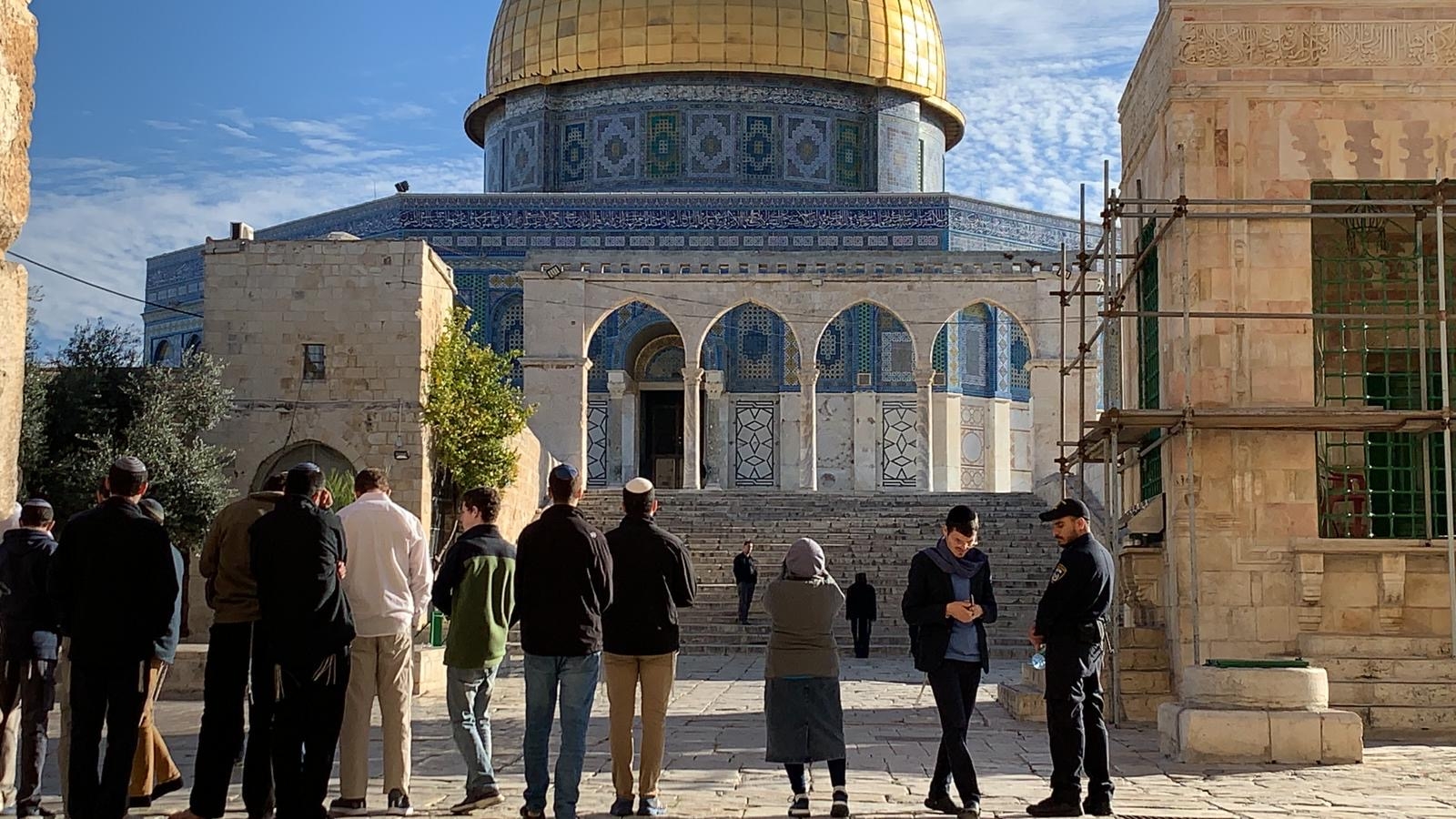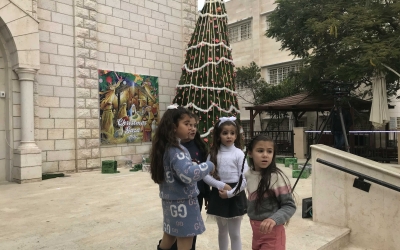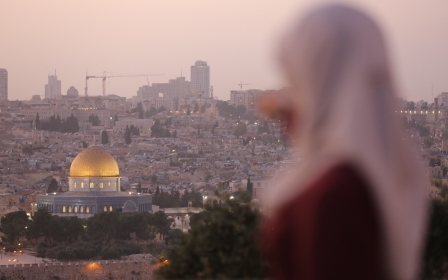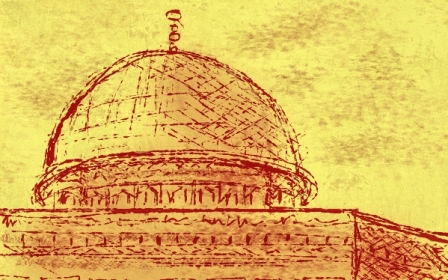Israeli settlers mark Hanukkah by storming Al-Aqsa compound

Scores of Israeli settlers stormed Jerusalem's Al-Aqsa compound, guarded by Israeli military police, to mark the Jewish holiday of Hanukkah, local media reported.
In a highly controversial move, nearly 300 Israelis entered the Muslim site through the Moroccan Gate and Chain Gate, Quds News Network reported.
Omar al-Kiswani, the manager of Al-Aqsa Mosque, said more than 200 Israeli "extremist" settlers entered the mosque "under the protection of the Israeli police and special forces".
The settlers performed Jewish prayers within the mosque and provoked Muslim worshippers, leading to a clash that prompted the Israeli police to intervene and arrest four Palestinian women, Kiswani told Middle East Eye.
"Storming al-Aqsa Mosque in such a blatant way and encouraging settlers to raid the mosque will ignite a religious war," Kiswani warned. "We hold the Israeli government responsible for these attacks and provocations."
The incursion took place on the second day of Hanukkah, which runs this year from the 22nd to the 30th of December.
Four Palestinian women were arrested by Israel’s military police after a confrontation with a settler at al-Rahmeh Gate.
Quds News named them as Elham Abu Sbeih, Oum Ayman al-Sous, Oum Mohammed al-Shyoukhi, and Oum Anan Ghrab.
Conflict over Al-Aqsa
Israeli settlers regularly enter the Al-Aqsa Mosque compound, and often illicitly perform prayers on the site, where they believe the Second Jewish Temple once stood.
Some right-wing Israeli activists, such as Yehudah Glick, a member of parliament, have advocated the destruction of the compound to make way for a Third Jewish Temple.
Activists have repeatedly sought to build support for an increased Jewish presence at the site, despite a longstanding joint guardianship agreement between Israel and Jordan, which retains control over Christian and Muslim holy sites in Jerusalem.
Al-Aqsa Mosque is one of the holiest sites in Islam. It was also Islam's first Qibla, the direction towards which Muslims must turn to pray, before that was changed to Mecca, in what is now Saudi Arabia.
Palestinians fear settler tours inside the Al-Aqsa compound may begin to normalise Israeli claims to the area, and further extinguish Palestinians' aspirations for full rights and a state of their own, with occupied East Jerusalem as its capital.
Middle East Eye delivers independent and unrivalled coverage and analysis of the Middle East, North Africa and beyond. To learn more about republishing this content and the associated fees, please fill out this form. More about MEE can be found here.





